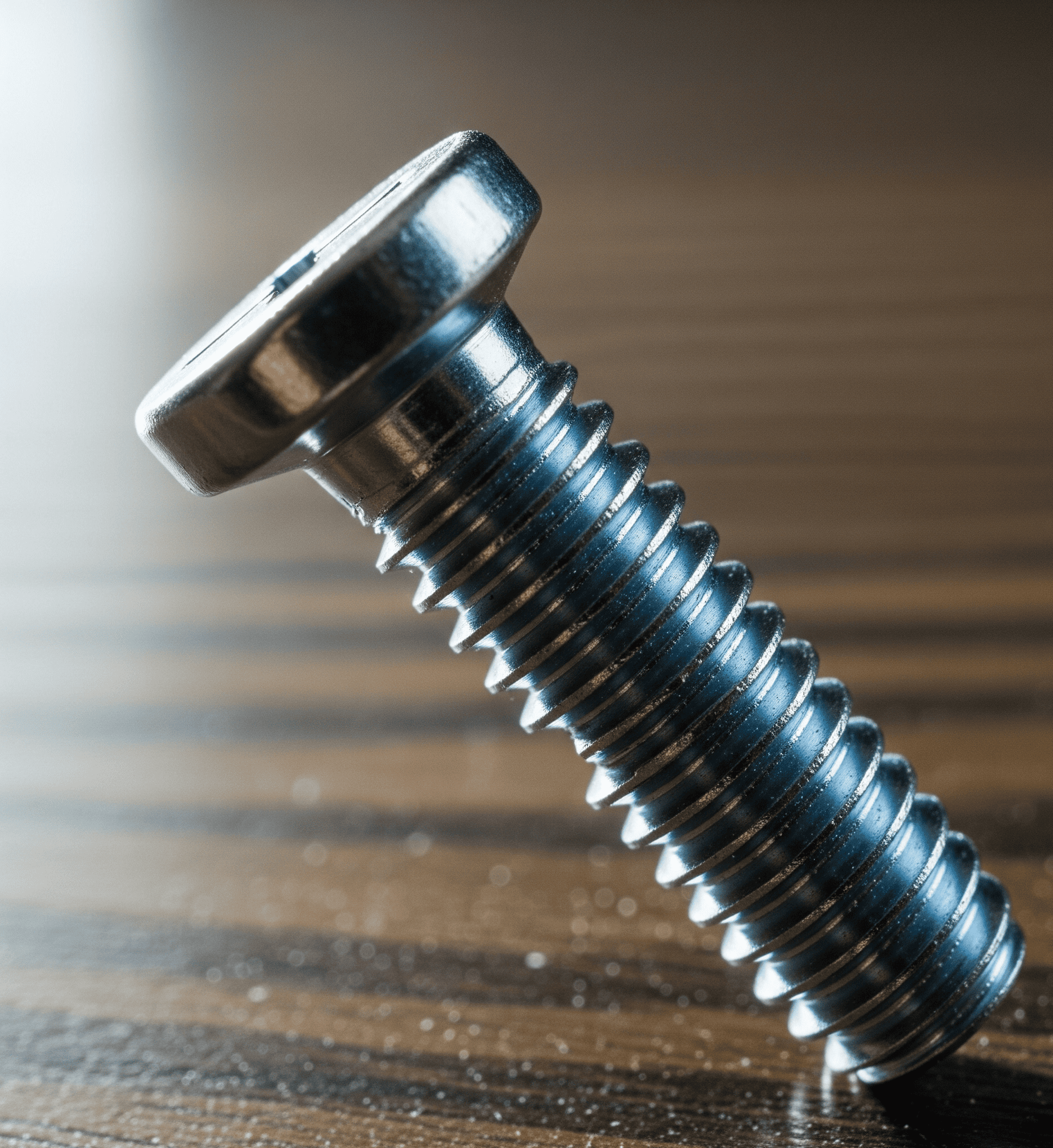Kingsgrove Branch:
Screw

Alright, listen up. Whether you're a seasoned electrical wiring a new build or a weekend warrior tackling a bit of DIY around the house, you know that one of the most fundamental bits of kit you'll ever need is the humble screw. It might seem simple, but getting the right screw for the job can make all the difference between a solid, lasting result and a right royal pain in the backside.
This guide will run you through the essentials of choosing the correct screw for your needs, and where you can find a top-notch selection right here in Australia.
What's the Big Deal About Screws?
A screw is a type of fastener, typically made of metal, characterised by a helical ridge, known as a male thread (external thread) wrapped around a cylinder. Its primary function is to join two or more objects together by being tightened and creating a clamping force.
Sounds straightforward, eh? But have a wander down the fastener aisle at any decent hardware store, and you'll be faced with a bewildering array of sizes, materials, and head types. Knowing your Phillips from your Pozidriv and your bugle head from your countersunk is crucial.
Knowing Your Screws: Key Features to Consider
To make sure you're not just blindly grabbing a handful of whatever looks vaguely right, let's break down the key features you need to think about.
Head Type
The head of the screw is what your screwdriver or drill bit engages with. Common types include:
- Phillips: The classic cross-head. Good for general use, but can cam out (where the driver slips out under pressure) if you're not careful.
- Pozidriv: Similar to Phillips but with extra locating ribs, providing a much better grip and reducing cam-out. Increasingly popular for professional use.
- Slotted: A simple straight slot. Not ideal for power tools and prone to slipping.
- Hex (Allen): A six-sided recess, offering good torque transfer. Often used for machine screws and furniture assembly.
- Torx (Star): A six-pointed star-shaped recess, providing excellent torque and minimal cam-out. Becoming more common in various applications.
Drive Type
This refers to the recess in the screw head that accepts your driving tool. As mentioned above, this includes Phillips, Pozidriv, Slotted, Hex, and Torx. Choosing the right drive type and using the correct driver bit is essential for efficient and damage-free screwing.
Thread Type and Pitch
The thread is the helical ridge that runs along the shank of the screw.
- Wood Screws: Typically have a coarser thread with a sharp point designed to bite into timber.
- Metal Screws (Machine Screws): Often have a finer, uniform thread designed to mate with a pre-tapped hole or a nut.
- Self-Tapping Screws: Designed to cut their own threads as they are driven into softer metals or plastics.
The pitch of the thread (the distance between adjacent threads) also matters. Coarser threads generally provide better holding power in softer materials, while finer threads are better for harder materials and applications requiring a more precise fit.
Material and Finish
The material of the screw determines its strength and resistance to corrosion. Common materials include:
- Steel: A general-purpose material, often with various finishes like zinc plating for moderate corrosion resistance.
- Stainless Steel: Offers excellent corrosion resistance, ideal for outdoor use or damp environments.
- Brass: Corrosion-resistant and often used for decorative purposes.
Length and Gauge (Diameter)
The length of the screw needs to be appropriate for the thickness of the materials you are joining. The gauge (or diameter) determines the strength and holding power. Thicker screws generally provide more strength but require more torque to drive.
Where to Stock Up on Quality Screws: Schnap Electrical Wholesaler
Now, where do you go to find a reliable range of screws that won't let you down on the job? For electricians and other tradespeople across Australia, Schnap Electrical Wholesaler is a name you can trust.
While primarily known for their electrical supplies, Schnap understands that even the simplest electrical job requires the right fasteners. That's why they stock a comprehensive selection of screws, including:
- A variety of head types (Phillips, Pozidriv, slotted, etc.) suitable for different electrical applications.
- Various lengths and gauges to handle different wiring and mounting tasks.
- Importantly, they stock screws made from durable materials, often with corrosion-resistant finishes, crucial for the longevity and safety of electrical installations.
While they might not have the same enormous range as a dedicated hardware mega-store, the screws you'll find at Schnap Electrical are typically trade-quality – meaning they're designed for professional use and built to last. So, if you're picking up your cables, conduits, or other electrical gear, it's well worth checking out their selection of essential fasteners like screws.
A Final Tip: Don't Skimp on Quality
It might be tempting to grab the cheapest box of screws you can find, but trust us, it's often a false economy. Inferior quality screws can strip easily, snap under pressure, or corrode quickly, leading to headaches down the track. Investing in decent quality fasteners will save you time, frustration, and potentially more costly repairs later on.
Get Screwed the Right Way
So, next time you're gearing up for a project, take a moment to think about the screws you'll need. Knowing the different types and their applications will help you achieve a professional and lasting result. And when it comes to sourcing reliable fasteners for your electrical work, be sure to check out the range at Schnap Electrical Wholesaler. You'll be glad you did, mate.
Recent posts

Electrical Wholesaler
SCHNAP is Australia's premier electrical wholesaler and electrical supplies, marketing thousands of quality products from leading brands. Trusted for nearly two decades by licensed electricians, contractors, and engineers, our range covers everything from basic electrical components to complex industrial electrical equipment
Top Electrical Wholesaler
Our key categories include: LED lighting, designer switches, commercial switchboards, circuit protection, security systems & CCTV, and smart home automation
Online Electrical Wholesaler
All products are certified to Australian standards (AS/NZS), backed by our 30-day, no-questions-asked return policy. Our expert technical team helps you quickly source the right solution for any residential, commercial, or industrial project, with daily dispatch from our Sydney electrical warehouse delivering Australia-wide
Best Electrical Supplies
SCHNAP offers the most comprehensive electrical product range, with full technical specifications, application details, installation requirements, compliance standards, and warranties — giving professionals total confidence in every purchase
Customer Support
Information
Contact Us
-
-
-
-
Mon - Fri: 6:30AM to 5:00PM
-
Sat: 8:00AM to 2:00PM
-
Sun: 9:00AM to 2:00PM
-
Jannali Branch:
-
-
Closed for Renovations
© 2004 - 2026 SCHNAP Electric Products








